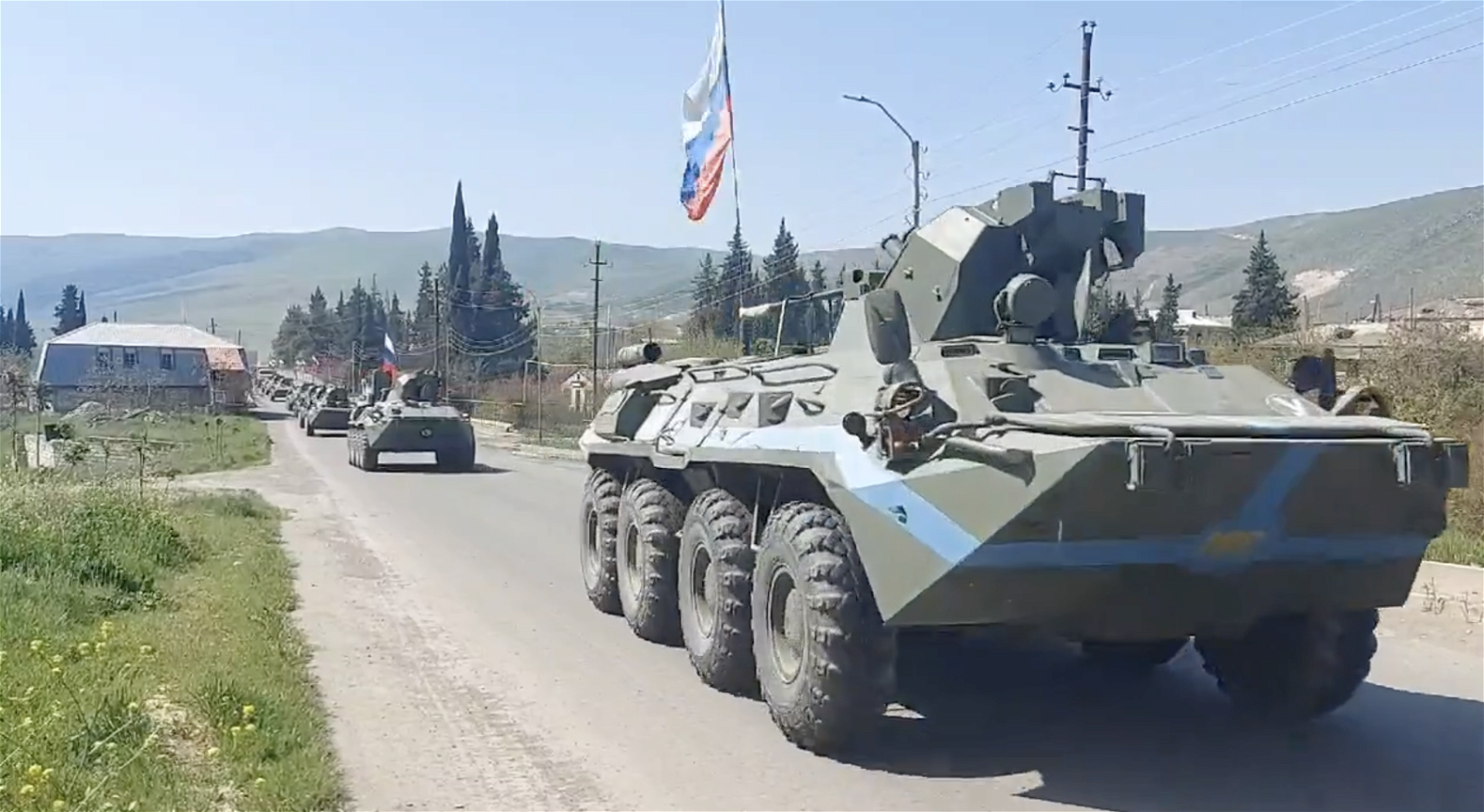
Artsakh
The Kremlin has officially confirmed the commencement of the withdrawal of Russian peacekeeping forces stationed in Artsakh. Dmitry Peskov, spokesperson for the Russian president, acknowledged the reports but refrained from providing details. This decision follows the publication of videos on Azerbaijani social media showing Russian military convoys leaving the region. Recent reports indicate that Russian personnel and military equipment first departed from the Armenian Dadivank Monastery located in the Karvachar region. The monastery, a site of cultural and historical significance, is now under the supervision of employees from the Ministry of Internal Affairs of Azerbaijan. The withdrawal was mutually agreed upon by the leaders of Russia and Azerbaijan, with Azerbaijani President Ilham Aliyev’s top foreign policy aide confirming the move.
Georgia
Today Georgia’s parliament progressed with the first reading of a bill concerning “foreign agents,” a move that has drawn criticism from the European Union, warning of potential repercussions for freedom and the nation’s aspirations for EU membership. The bill’s future is perceived as a litmus test for Georgia’s trajectory, signaling whether the nation intends to align more closely with Western values or lean towards Russia. With 83 out of 150 deputies voting in favor, the bill advanced despite opposition MPs boycotting the vote. The legislation, which triggered days of mass protests, mandates that organizations receiving over 20-percent of their funding from abroad register as foreign influence agents, similar to Russian legislation used to suppress dissent. President Salome Zurabishvili has announced that she will veto the law if it is adopted.
Iran
Iran’s Ambassador to Armenia, Mehdi Sobhani, addressed concerns over regional tensions, urging Yerevan and Baku to prioritize dialogue. Highlighting the strategic importance of Armenia for Iran, Sobhani emphasized the role of Armenia as an airway to northern routes and the Black Sea, while Iran serves as a gateway to Persia and the countries of the Gulf of Oman for Armenia. Sobhani condemned the use of Israeli weapons during the 44-day war in Artsakh, labeling Israel as a destabilizing force in the South Caucasus. He also announced forthcoming agreements between Armenia and Iran in the transportation and transit sectors, including the establishment of a center at Iran’s Chabahar port aimed at enhancing trade with India and southern regions.
Russia/Turkey
The joint Russian-Turkish monitoring center in Aghdam is concluding its operations, as announced by the Ministry of Defense of Turkey. This comes alongside the ongoing withdrawal of Russian peacekeeping troops from occupied Artsakh. The joint Russian-Turkish monitoring center, opened in Aghdam on January 30, 2021, aimed to oversee the maintenance of the ceasefire in Artsakh and ensure compliance with agreements reached during the November 9 tripartite talks.


A new chapter is coming old sentiments on the way out in the face of the new reality.